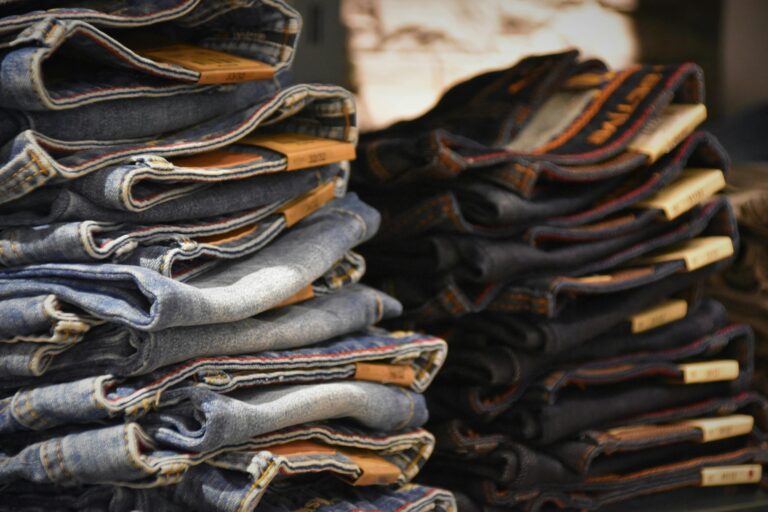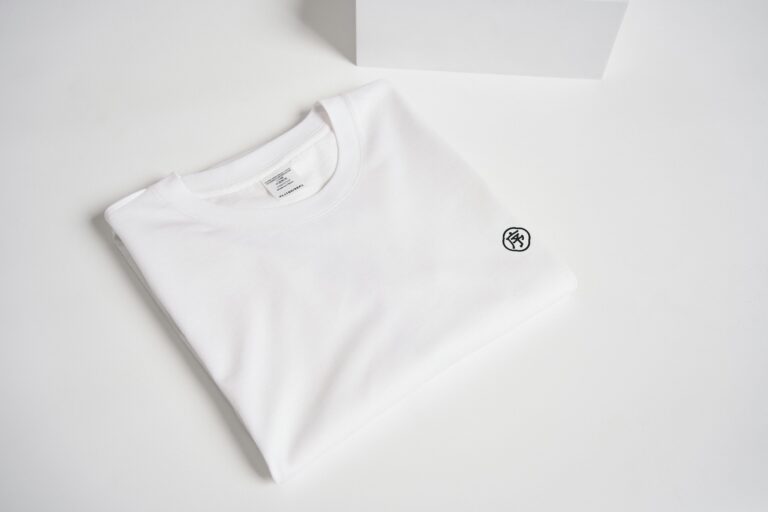For households where sensitive skin is a concern, choosing the right laundry softener is essential. Traditional fabric softeners may contain chemical irritants that can trigger allergies or skin sensitivities. This has led to the rise of laundry softeners specifically designed for sensitive skin, providing an effective solution for gentle fabric care. Hypoallergenic softeners are crafted to meet the needs of those with delicate skin, ensuring that your laundry is not only clean but also soft and safe for all family members. The National Eczema Foundation even suggests utilizing an extra rinse cycle to remove any potential irritants, further emphasizing the importance of selecting suitable products for sensitive skin1.
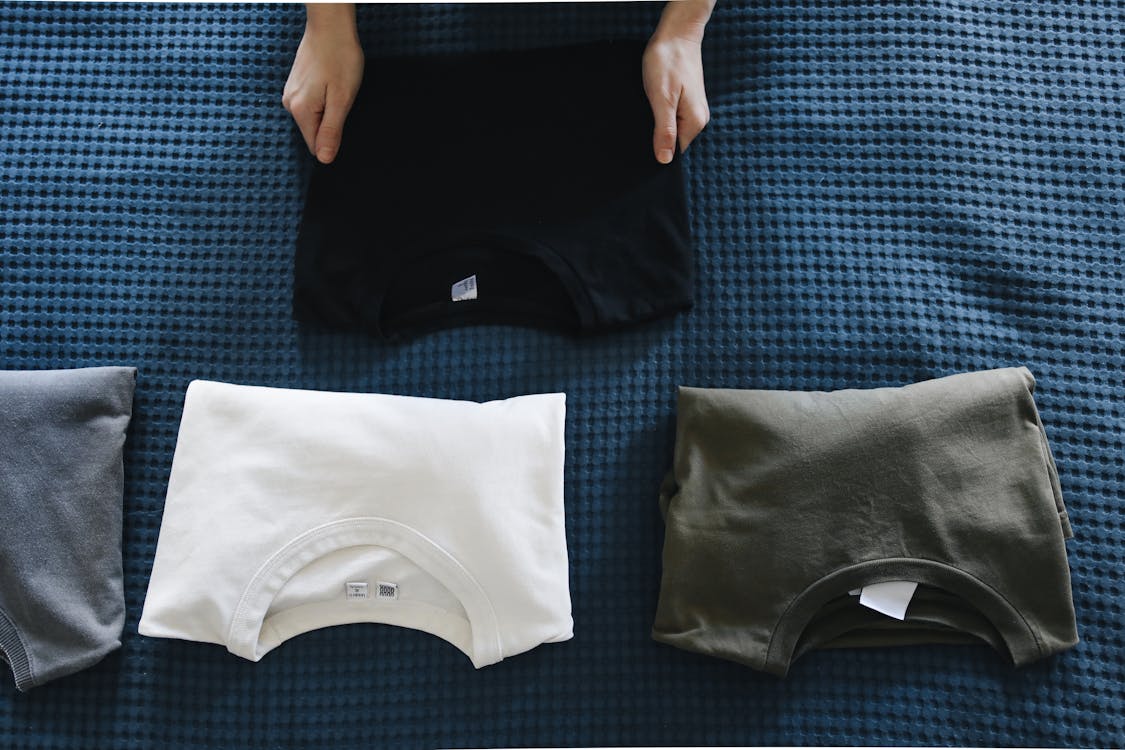
Understanding Sensitive Skin and Its Needs
Sensitive skin presents unique challenges, often manifesting as redness, irritation, or dryness. In the United States, 44.6% of the population reports experiencing sensitive skin, necessitating special attention in skin care routines2. This condition increases the likelihood of adverse reactions to certain products, particularly laundry softeners and detergents. Chemicals in detergents, for instance, can lead to unwanted irritation and aggravate fabric sensitivity in individuals with sensitive skin3.
Choosing laundry products without harsh chemicals is vital for maintaining skin health. Individuals with sensitive skin should opt for detergents free from dyes and fragrances, as these additives heighten the risk of skin infections3. Additionally, selecting laundry products with optimal pH levels helps safeguard the skin’s barrier, reducing the potential for skin diseases3.
Rinsing clothes thoroughly is equally important to remove detergent residues that can trigger skin irritation. Those with sensitive skin often experience discomfort due to these residues, emphasizing the necessity of proper laundering techniques3. As fabric sensitivity can be influenced by various factors, such as hormonal changes during puberty or conditions like eczema, understanding these components is essential for effective skin care2.
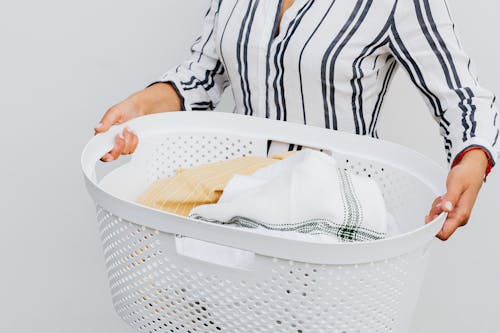
Benefits of Using Laundry Softener for Sensitive Skin
Using a laundry softener specifically designed for sensitive skin provides numerous advantages that can transform your laundry routine. One significant benefit of laundry softeners lies in their ability to soften fabrics, contributing to a noticeably improved texture that makes clothing more comfortable to wear. Many users appreciate the softening effect, as noted with brands like Downy Free and Sensitive, which offer familiar softness and pleasant scents without irritating the skin.
Furthermore, the hypoallergenic benefits of these softeners play a crucial role in minimizing skin irritation, ensuring that even individuals with highly sensitive skin can enjoy the comfort of their freshly laundered clothes. With a considerable percentage of the population experiencing sensitivity, products that prioritize skin health have become essential4. Additionally, concentrated laundry softeners take up less space in storage while delivering the same effectiveness as traditional options5.
It is important to choose fabric softeners that are dermatologically tested for added safety and quality guarantees. Options that include active components can further enhance the laundry experience by reducing static in clothes, making them easier to iron5. The right laundry softener can significantly reduce skin irritations for many users, making them an excellent choice for families looking to enhance their cleaning routine while prioritizing comfort4.
Ultimately, incorporating laundry softeners into your wash can lead to a more pleasant experience while ensuring that sensitive skin receives the care it deserves6.
Key Ingredients to Look for in Laundry Softeners
Selecting the right laundry softener involves identifying key ingredients that cater to sensitive skin needs. Gentle softeners, often formulated with plant-based and mineral-based components, provide a safer washing experience. For families dealing with sensitivities, the choice of a softener plays an essential role in avoiding skin irritations. Products like ATTITUDE’s Sensitive Skin Natural Baby Fabric Softener stand out for their natural and hypoallergenic components that effectively soften clothes without harmful residues7.
Avoiding traditional fabric softeners loaded with chemicals is crucial. Ingredients such as quaternary ammonium compounds and synthetic fragrances can exacerbate allergies and impact aquatic life negatively8. Instead, exploring non-toxic options that utilize natural alternatives, like vinegar or essential oils, can yield better results for both skin health and the environment9.
It’s important to pay attention to product labels and avoid harmful preservatives, which can contribute to skin reactions and potential health risks. Understanding these key ingredients will not only help in providing comfort for sensitive skin but will also align choices with eco-friendly practices as more consumers are leaning towards sustainable solutions7.
For a more in-depth look at the benefits of natural fabric softeners, visit this link: Natural Fabric Softeners Explained.
Popular Brands Offering Sensitive Skin Options
When selecting sensitive skin products, several popular brands stand out for their commitment to gentle care. Arm & Hammer™ offers a liquid laundry detergent that is dermatologist tested and concentrated, providing 2x powerful stain fighters in every load compared to leading value detergents. This hypoallergenic softener is dye-free, ensuring a gentle yet effective cleaning solution for sensitive skin, making it a top choice for many families10.
Another notable option is All Free Clear Liquid 2x Concentrated. This product averages only $0.15 per load, below the median cost of $0.25 for similar sensitive skin formulas1. This brand is popular for its affordable pricing while still being effective and safe for sensitive skin.
Seventh Generation’s Free & Clear Laundry Detergent also deserves recognition for its environmentally friendly credentials, being a USDA Certified Biobased Product with at least 97% plant-based ingredients1. This brand aligns well with eco-conscious consumers seeking sensitive skin products without compromising on cleaning power.
For those preferring convenience, Dropps Sensitive Skin & Baby Detergent in pre-measured pods offers an easy-to-use solution that simplifies the laundry process. Each box comes in sizes of 36, 64, or 160 pods, catering to various laundry needs.
Additionally, Attitude fabric softener is an excellent hypoallergenic softener that holds both EWG Verified™ certification and ECOLOGO certification, ensuring high safety standards and environmental leadership8. Consumers can choose from a variety of trusted brands, each providing unique features and benefits tailored for individuals with sensitive skin to ensure a delightful laundry experience.
How to Choose the Best Laundry Softener
When choosing laundry softener, it’s essential to consider various factors that impact its effectiveness and suitability for sensitive skin. Start by looking for options that boast hypoallergenic labels and certifications. These indicators often suggest that the product has been specially formulated with safety in mind, making them ideal candidates for sensitive skin selection.
Price can also guide your choices. For example, Downy April Fresh Fabric Conditioner is priced at $9 at Target and is available at varying prices of $21 on Amazon and $14 at Walmart11. Alternatively, Downy Free and Gentle fabric softener is available for $8 at Walmart, making it one of the best options for budget-conscious consumers11.
Consider the packaging size and how many loads of laundry a specific product can handle. Gain Original Fabric Softener, for instance, can do up to 60 loads with its 51-ounce bottle12. It’s helpful to compare these specifications against your regular laundry routine to ensure you choose a softener that meets your needs.
Fragrance choices may also influence your purchasing decision. If you prefer unscented products, options like Seventh Generation Unscented Fabric Softener Sheets are dermatologist-tested and suitable for sensitive skin12. For those who enjoy scents, Mrs. Meyer’s offers fragrant options that can enhance your laundry experience without irritating sensitive skin.
Take the time to research various products online, read customer reviews, and compare attributes before making your purchase. This diligence will aid in making an informed decision when selecting the best laundry softener for your sensitive skin needs, ensuring both comfort and quality in your laundry routine.
Application Tips for Maximum Effectiveness
To maximize the effectiveness of laundry softener use, proper application techniques are essential. Begin by locating the fabric softener dispenser in your washing machine. Many modern machines come equipped with designated compartments to ensure optimal dispensing during the rinse cycle. Following the manufacturer’s guidelines for dosage is crucial, as overuse can lead to product buildup and clogs in your machine13.
When measuring out your fabric softener, make sure to follow the indicated lines on the measuring cap. This helps avoid excess application that can lead to residue on your clothes and washing machine components. Dilution in water before adding to the rinse cycle may enhance the product’s performance, allowing for better dispersion and softening effects13.
It is important to keep the softener away from direct contact with fabrics to prevent irritation, especially for those with sensitive skin. Fragrances present in many softeners can act as irritants, emphasizing the need to choose hypoallergenic products designed for delicate skin types14. Products like Just Green Organic Herbal Fabric Softener can be a suitable choice for those dealing with sensitivity13.
An extra rinse cycle can be beneficial, as it helps to remove any lingering allergens and detergent residues from your laundry. This step ensures a cleaner finish and reduces the potential for skin irritation14. Moreover, regular maintenance of your washing machine is essential. Mold and mildew buildup can negatively impact the cleanliness of your wash, introducing allergens into your fabrics14.
By applying these washing machine tips, you can enhance your laundry experience while caring for sensitive skin effectively. Proper application of laundry softener not only ensures clothes come out feeling soft but also protects delicate skin from potential harmful irritants.
DIY Alternatives to Commercial Softener
For those looking to explore DIY fabric softener options, several natural alternatives can effectively soften clothes without the harmful chemicals found in conventional options. Utilizing white vinegar or baking soda as homemade solutions provides an easy and cost-effective way to achieve a soft fabric feel while addressing sensitive skin concerns. White vinegar works by breaking down detergent residues and removing odors, while baking soda balances pH levels in your laundry, enhancing fabric softness and neutralizing smells15.These alternatives not only improve your laundry but also lessen environmental impact due to their biodegradable nature and non-toxic ingredients.
Making DIY wool dryer balls can further serve as an effective alternative to traditional dryer sheets. These balls, made from 100% wool, help reduce drying time and static cling while softening clothes naturally16. While some users find success with these balls, those who prefer line drying may need to consider other methods to achieve softness. Essential oils can be added for fragrance, though caution is advised due to a small risk of ignition when used in dryer balls16. For the economically minded, a DIY fabric softener using vinegar, baking soda, and optional essential oils can cost around $2.17 per batch, with even more budget-friendly solutions like using vinegar and hair conditioner costing approximately $1.04 per batch17.
In terms of performance, the conditioner-based recipe provides better softhern than the vinegar variant, allowing for 30-40 loads at a remarkably low cost per load, ranging from $0.03 to $0.0517. This presents consumers not just with homemade solutions but viable budget-friendly options that are beneficial for both health and the environment. Transitioning to these natural alternatives can significantly impact laundry practices while catering to sensitive skin needs and reducing exposure to potentially toxic chemicals often found in conventional fabric softeners15.
The Environmental Impact of Laundry Softeners
Many traditional fabric softeners present significant environmental impact due to their petroleum-based components, contributing to harmful emissions, including carbon dioxide, a potent greenhouse gas18. Some of these products derive from palm oil, which is linked to deforestation and biodiversity loss18. The presence of toxic elements such as glutaraldehyde in fabric softeners poses risks to marine life, demonstrating the urgent need for laundry product sustainability18. Furthermore, the Quats found in fabric softeners resist natural degradation, particularly in aquatic systems, affecting water quality18.
In terms of health, over 4,000 fragrance ingredients in common household products can trigger allergies and skin irritations, making consumers wary of potential risks19. Synthetic musks like galaxolide accumulate in the body, raising concerns about long-term effects, especially for sensitive skin users19. Additionally, harmful scents emitted during laundry can adversely affect individuals with asthma, exacerbating their conditions19.
For those seeking eco-friendly softeners, it is crucial to consider alternatives that prioritize both health and environmental sustainability. The use of wool dryer balls not only enhances the drying process but also offers energy savings while reducing the reliance on conventional, chemical-laden products19. The rise of eco-friendly softeners aligns with consumers’ growing awareness of laundry product sustainability and the broader environmental impact associated with everyday choices.
In particular, fabric softeners can trigger allergic reactions in individuals with sensitive skin due to their heavy fragrances and chemical compositions, potentially leading to skin irritations and respiratory issues20. These products often leave a waxy residue on garments, impairing their absorbency and diminishing the performance of functional fabrics like athletic wear20. Furthermore, the excessive use of fabric softeners can accumulate in washing machines, leading to potential mold growth and malfunctions20. Emphasizing the importance of eco-friendly choices furthers the drive toward a more sustainable approach to laundry care.
Common Myths About Laundry Softener
Many people hold misconceptions about laundry softeners, often believing they are unnecessary or potentially harmful to sensitive skin. In reality, fabric softener plays an essential role in laundry care. It neutralizes the pH level of fabrics to reduce the risk of skin irritation caused by alkaline residues21. Another common myth suggests that fabric softeners reduce absorbency, but when used correctly, they can enhance the feel and freshness of clothes without impacting their ability to soak up liquids22. Additionally, using fabric softener can actually decrease drying time by repelling water, thus allowing clothes to dry more quickly21.
Some households may think that fabric softener is not suitable for all types of laundry. This is a significant misconception as specific formulations, such as those designed for sensitive skin, can provide comfort without compromising quality22. Reports indicate that 1 in 3 households consider malodor their top laundry issue, emphasizing the necessity for effective deodorizing agents in softeners23. Additionally, it’s advised to follow manufacturer recommendations to avoid residue buildup, which can result from using too much detergent or fabric softener22.
In summary, understanding the truth about softeners helps dispel laundry softener myths. The advancements in these products ensure they contribute positively to laundry routines while catering to those with sensitive skin, enabling users to enjoy fresher and softer clothes without compromising their wellbeing21.
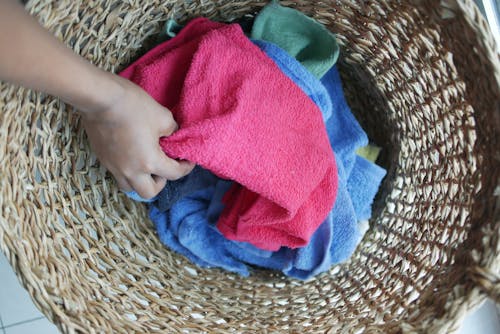
Caring for Laundry with Sensitive Skin in Mind
Caring for laundry with sensitive skin requires a thoughtful approach to laundry care that prioritizes both comfort and fabric integrity. Over 50 million people in the U.S. suffer from allergies, making it essential to choose products that minimize potential irritants24. When it comes to sensitive skin laundry, understanding fabric types helps in selecting appropriate washing temperatures and drying methods. Using a fabric softener can help reduce scratchiness and irritation for sensitive skin, ensuring garments feel comfortable against the skin25.
Following fabric care tips, such as washing new clothes before their first use and pretreating stains, can significantly contribute to skin health. Cleaning seasonal clothes before wearing them aids in removing dust that may aggravate existing skin conditions25. Additionally, regular cleaning of the washing machine is crucial to prevent mold growth, which can be another irritant for sensitive individuals. Choosing laundry detergents that are free from harsh chemicals, dyes, and fragrances is vital, as these elements can lead to unwanted skin reactions3.
Ensuring that the right dosage of laundry detergent is used prevents product buildup, which may interfere with the fabric care of sensitive skin laundry. Those dealing with eczema or other skin issues, affecting 50% of household members, should look for laundry products specifically designed for their needs25. Remember, thorough rinsing is essential to eliminate detergent residues that can cause irritation3. By adopting these careful practices, individuals can maintain their laundry while protecting their skin’s health.
Conclusion: Making the Best Choices for Sensitive Skin
Choosing the right laundry softener is crucial for individuals with sensitive skin. A well-rounded laundry softener guide emphasizes the significance of selecting products that are dermatologically tested and free from harsh irritants. By focusing on hypoallergenic options, consumers can minimize adverse reactions, which are particularly important for thin, sensitive skin and for families with babies where pediatrician recommendations are vital26.
Moreover, it’s essential to consider both the product’s ingredients and its packaging. Look for natural components like coconut oil or aloe vera and discern clear indicators on packaging that signal hypoallergenic or chemical-free status. The impact of these ingredients can significantly alter the laundry experience, ensuring cleanliness while prioritizing sensitive skin considerations2627..
Ultimately, informed decisions lead to the best choices for laundry softness without compromising skin health. By exploring a variety of options such as Mrs. Meyer’s Clean Day Liquid Fabric Softener, Snuggle Liquid Fabric Softener, or even eco-friendly alternatives like Purecosheet Reusable Dryer Sheets, individuals can enjoy delightful, fresh laundry that also protects their skin28.
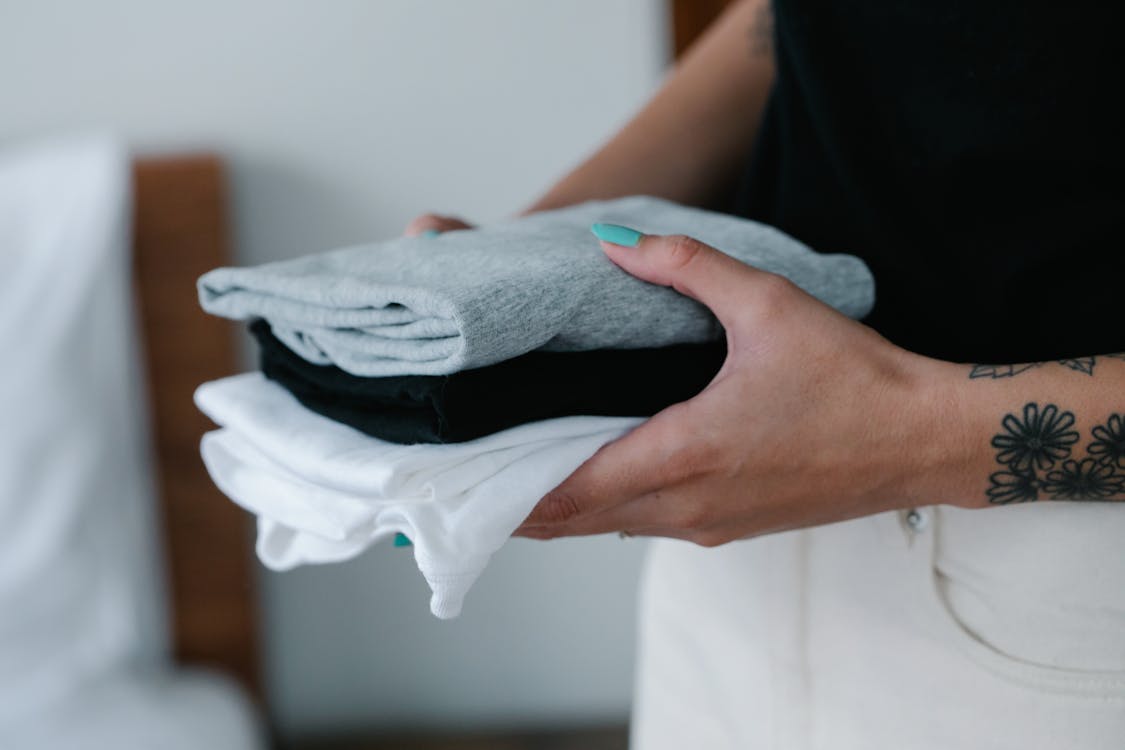
FAQ
What is a laundry softener for sensitive skin?
A laundry softener for sensitive skin is a specially formulated product designed to soften fabrics while minimizing the risk of skin irritation. These softeners are typically hypoallergenic, free from harsh chemicals, and formulated to be gentle on sensitive skin types.
How can I tell if I have sensitive skin?
Sensitive skin can show signs such as redness, itching, or dryness after contact with certain products, including laundry detergents and softeners. If you experience discomfort or noticeable reactions from laundry products, you may have sensitive skin.
Why should I choose hypoallergenic fabric softeners?
Hypoallergenic fabric softeners are designed to reduce the likelihood of skin irritation and allergic reactions. Choosing these products can help keep your clothes soft and pleasant while protecting your skin health.
What ingredients should I look for in laundry softeners for sensitive skin?
Look for laundry softeners that include plant-based or mineral-based ingredients, which are generally gentler on the skin. Ingredients that are dermatologically tested and vegan-friendly are also preferable for sensitive skin.
Are there specific brands recommended for sensitive skin?
Yes, notable brands like Downy Free and Sensitive, and ATTITUDE’s Sensitive Skin Natural Baby Fabric Softener offer options that are well-suited for individuals with sensitive skin. These brands emphasize hypoallergenic formulas and gentle care.
How do I apply laundry softener properly?
To ensure effective use, add the proper amount of fabric softener to your washing machine’s fabric softener dispenser. Avoid pouring it directly on fabrics and follow the manufacturer’s guidelines regarding measuring for best results.
Can I make my own natural laundry softeners?
Absolutely! You can create DIY laundry softeners using ingredients like white vinegar or baking soda. These natural alternatives are effective in softening fabrics without potentially irritating synthetic chemicals.
What is the environmental impact of laundry softeners?
Many commercial laundry softeners contain chemicals that may be harmful to the environment. Opting for eco-friendly softeners or natural alternatives can help reduce your carbon footprint and promote sustainability.
Are there any myths about laundry softeners I should be aware of?
Yes, one common myth is that all laundry softeners are harmful to sensitive skin. In reality, there are many hypoallergenic options available that cater specifically to those with skin sensitivities, making them safe and beneficial to use.
What are the best laundry care practices for sensitive skin?
When caring for laundry, use gentle cycles, moderate washing temperatures, and fragrance-free detergents. Select fabrics that are less likely to irritate the skin and avoid drying methods that may damage sensitive fabrics.


